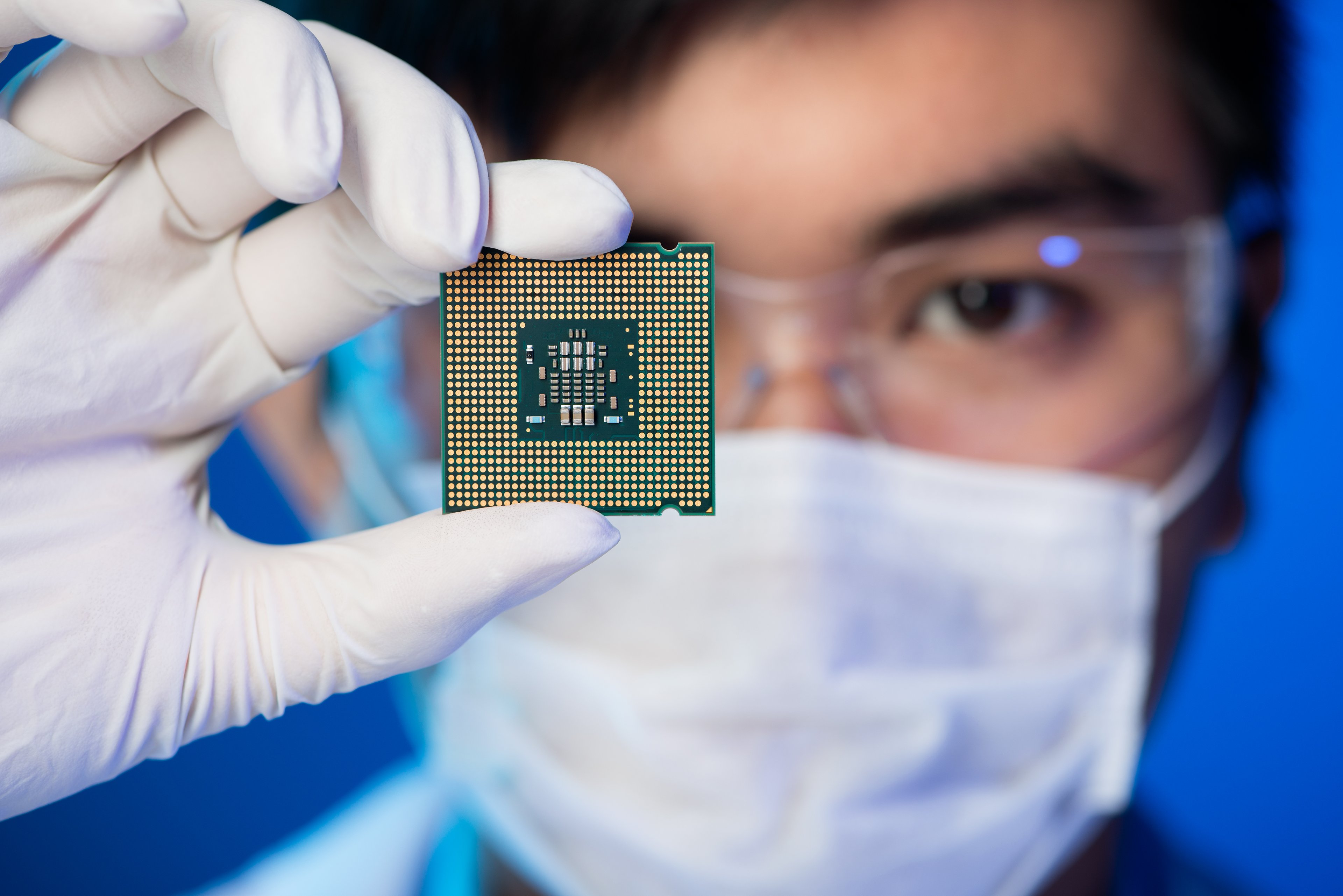While it would be silly to invest all of your portfolio in one stock, it's a great mental exercise to see where your convictions lie in the current market environment. It also ensures that you know all of the bull and bear cases behind the stock, which an investor should know for every investment.
After going through my portfolio, I've determined that one stock stands out above the rest as the one I'd be comfortable sticking all of my money in: Taiwan Semiconductor (TSM +2.21%). This pick may surprise some people, but I believe the current environment will shape up well for TSMC.

Image source: Getty Images.
Taiwan Semiconductor is the leader in its industry
Taiwan Semiconductor is the world's largest chip manufacturing company. It runs a chip foundry, so companies without chip production capability (nearly all big tech companies) have a supplier to manufacture their designs. Because Taiwan Semiconductor isn't competing with its clients, customers trust the company with their production. This allows TSMC to manufacture chips for clients that may be competing against each other (such as Nvidia and AMD).
TSMC is also on the cutting edge of this industry. While it offers industry-leading 3-nanometer (nm) chips, it plans to launch 2nm and 1.6nm chips in late 2025 and 2026. This dedication to continuous product innovation cements the company's position at the top of the chip foundry world and makes it a top option to partner with.

NYSE: TSM
Key Data Points
One side of the bear case is that Taiwan Semiconductor manufactures most of its products in Taiwan, exposing it to two risks: China and tariffs. The first risk would potentially lead to a global war if China attempted to take over Taiwan by force. If this happened, the markets would crash anyway, so I tend to ignore this argument. As for the second risk, semiconductors are currently exempt from tariffs because of how vital they are and how U.S. chip production isn't as advanced as TSMC's.
Taiwan Semiconductor is also expanding its global footprint by building manufacturing facilities in Germany, Japan, and the U.S. In addition to the initial investment of $65 billion that TSMC made in the U.S., it announced an additional $100 billion investment to build three manufacturing facilities, two packaging centers, and one research-and-development facility. This expansion plan may be enough to keep TSMC out of the Trump administration's crosshairs, as it's doing exactly what he wants it to do.
But the biggest reason TSMC is a great stock to buy now is its growth trajectory, which few others can match.
Management expects monster growth over the next five years
Chip orders are placed years in advance, so investors would be wise to listen when TSMC's management speaks about chip demand. Over the next five years, management sees AI-related chip revenue increasing at a compound annual growth rate (CAGR) of 45%. Companywide, that rate is expected to reach nearly 20%. Few companies have product demand to deliver growth figures like that, especially since there are few companies near TSMC's size (the company is worth nearly $1 trillion).
If its companywide CAGR is 20% over the next five years, Taiwan Semiconductor's revenue will increase by nearly 150%. As long as TSMC's stock isn't overvalued, this could likely result in a similar rise in the stock price. Fortunately for investors, Taiwan Semiconductor's stock is cheap.
At 19 times forward earnings, TSMC's stock is attractively priced.
TSM PE Ratio (Forward) data by YCharts. PE = price-to-earnings.
At that price tag, it's actually cheaper than the S&P 500 (^GSPC +0.03%), which trades for 21.2 times forward earnings.
With Taiwan Semiconductor expanding its global footprint, growing rapidly, and trading for a cheap valuation, the stock is a no-brainer buy here. I'm confident that the stock will provide solid returns over the next five years, and I've positioned my portfolio accordingly, as TSMC is one of my biggest holdings. Investors would be smart to scoop up shares here, as the stock could rebound rapidly if there's positive news from the White House regarding tariffs.






